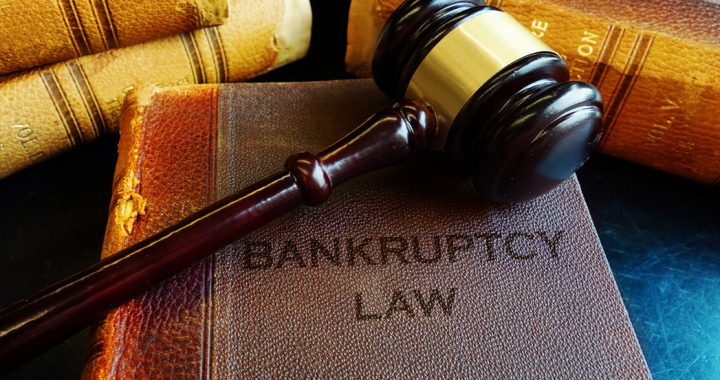In Bankruptcy, Are Both the Prevailing Party and the Oversecured Creditor Entitle to Attorneys’ Fees When the Oversecured Creditor Loses the Action on a Contract?
In a case that should grab every commercial lenders’ attention, a bankruptcy court in the Central District of California in Altadena Lincoln Crossing LLC, 2018 Westlaw 3244502 (Bankr. C.D. Cal. 2018) disallowed an over $10 million default interest component to the bank’s proofs of claim, finding that the default interest was an unenforceable penalty under California’s liquidated damages statute, California Civil Code section 1671(b), which provides that “a provision in a contract liquidating the damages for the breach of the contract is valid unless the party seeking to invalidate the provision establishes that the provision was unreasonable under the circumstances existing at the time the contract was made.” The Court found that there was no evidence demonstrating that the parties negotiated or even discussed the issue of default interest before or at the time the contracts were made. As a result, the Court disallowed the entire $10 million default interest component as being categorically unenforceable under California law.
The gravity of the Altadena default interest analysis has been discussed by numerous commentators, including Loyola Law School’s Professor Dan Schechter.
But, this article analyzes a different issue raised by the Altadena case: whether an oversecured creditor is entitled to attorneys’ fees and costs when it loses a claim objection and the debtor is declared the prevailing party on the contract under state law. In Altadena, the bankruptcy court appears to have disallowed the bank’s attorneys’ fees and costs related to its defense of the debtor’s claim objections, finding that the debtor was the prevailing party on the contract because it prevailed on its claim objections. But, the categorical disallowance of the bank’s attorneys’ fees based on a state law fee-shifting statute is not an obvious result, given that the bank was an oversecured creditor. As analyzed below, courts have taken different approaches to this situation.
Background
In Altadena, the debtor, Altadena (“Debtor”), filed claim objections to two proofs of claim filed by East West Bank (“Bank”), an oversecured creditor. The Bank’s first claim included a default interest component of over $10 million and the second claim included a default interest component of over $175,000. The court found that there was no evidence that the parties’ agreed-upon 5% default interest provision was the product of the parties’ pre-contractual efforts to estimate a fair average compensation for the foreseeable loss that the Bank might suffer in the event of default. As a result, the court disallowed these default interest components, finding them to be unenforceable penalties under California Civil Code section 1671(b).
The court also found that the Debtor was the “prevailing party” on the claim objections, finding that because the Debtor was the “prevailing party” on the claim objections, the Bank should exclude its fees and costs incurred in connection with the claim objection litigation. Altadena, 2018 WL 3244502 at *12 (“[The Bank] shall file and serve one or more declarations setting forth its calculation of the attorneys’ fees and costs that it is entitled to recover as part of its secured claims, which declarations shall include as attachments copies of time records reflecting the relevant services. As the Debtor is the prevailing party with regard to the Objections, these calculations should not include fees or costs incurred in connection with litigation of the Objections. . . .”).
Thoughts
Altadena is interesting because under state law, the bank would not be entitled to attorneys’ fees since it was not the “prevailing party on the contract,” but under bankruptcy law, it was entitled to recover its “reasonable” attorneys’ fees as an oversecured creditor under section 506(b) of the Bankruptcy Code.
Although not expressly analyzed in the opinion, the court’s “prevailing party” reference may have been a reference to California Civil Code section 1717(a), which provides a reciprocal right to attorneys’ fees to the “prevailing party on the contract.” But, generally, oversecured creditors are entitled to “reasonable fees, costs, or charges” under section 506(b) of the Bankruptcy Code.
Other courts confronted with this situation have found that the oversecured creditor is entitled to attorneys’ fees and costs, subject to a federal reasonableness analysis, which is not limited by state law “prevailing party” or fee-shifting analysis. See In re Hoopai, 581 F.3d 1090 (9th Cir. 2009) (analyzing pre-2005 BAPCPA version of section 506(b) and finding that an oversecured creditor was entitled to post-petition / pre-confirmation attorneys’ fees which could not be limited by state law despite the fact that the debtor was the prevailing party under Hawaii fee-shifting statute); In re McGaw Property Management, Inc., 133 B.R. 227 (Bankr. C.D. Cal. 1991) (awarding oversecured creditor attorneys’ fees under section 506(b), but also awarding debtor attorneys’ fees under California Civil Code section 1717(a) as the debtor was the prevailing on the contract, i.e., the claim objection at issue).
A federal “reasonableness analysis” looks very different than the all-or-nothing “prevailing party” analysis under state law. See In re Le Marquis Associates, 81 B.R. 576, 578 (9th Cir. BAP 1987) (“Reasonableness embodies a range of human conduct. The key determinant is whether the creditor incurred expenses and fees that fall within the scope of the fees provision in the agreement, and took the kinds of actions that similarly situated creditors might reasonably conclude should be taken, or whether such actions and fees were so clearly outside the range as to be deemed unreasonable. The bankruptcy court should inquire whether, considering all relevant factors including duplication, the creditor reasonably believed that the services employed were necessary to protect his interests in the debtor’s property.”) (citations omitted).
It is not clear whether these issues were raised at the bankruptcy court level in the Altadena case, and from the decision itself, it appears that this argument was not raised. But, unless all of the Bank’s attorneys’ fees incurred in defense of the Debtors’ claim objections were beyond the pale, the Bank’s section 506(b) entitlement means the Bank may have been entitled to recovery of at least some of its fees insofar as those fees were determined to be reasonable under federal law.
Commercial lenders concerned about the enforceability of default interest and attorneys’ fees and costs should contact attorneys at Frandzel Robins Bloom & Csato, L.C. to discuss these complex issues, which are important at the formation the lending relationship through bankruptcy and beyond.
By Gerrick Warrington
Associate at Frandzel Robins Bloom & Csato, L.C.

